Bio-Analytical Chemistry, Human Identity & Forensic Publications
, 2026. Salience, legitimacy, and credibility of two end-to-end forensic single cell probabilistic systems. Forensic Sci Int Genet 81:103369
, 2025. The (in)dependence of single-cell data inferences on model constructs. Forensic Sci Int Genet 76:103220
, 2024. Calculation of the Weight of Evidence for Combined Single-Cell and Extracellular Forensic DNA. IEEE/ACM Trans Comput Biol Bioinform 21(6):2587-2591
, 2024. Single-cell investigative genetics: Single-cell data produces genotype distributions concentrated at the true genotype across all mixture complexities. Forensic Sci Int Genet 69:103000
, 2023. Evidentiary evaluation of single cells renders highly informative forensic comparisons across multifarious admixtures. Forensic Sci Int Genet 64:102852
, 2022. Corrigendum to "The a posteriori probability of the number of contributors when conditioned on an assumed contributor" [Forensic Sci. Int. Genet. 54 (2021) 102563]. Forensic Sci Int Genet 58:102666
, 2022. Rapid Nucleic Acid Reaction Circuits for Point-of-care Diagnosis of Diseases. Curr Top Med Chem 22(8):686-698
, 2022. High-quality data from a forensically relevant single-cell pipeline enabled by low PBS and proteinase K concentrations. J Forensic Sci 67(2):697-706
, 2021. The a posteriori probability of the number of contributors when conditioned on an assumed contributor. Forensic Sci Int Genet 54:102563
, 2021. A series of developmental validation tests for Number of Contributors platforms: Exemplars using NOCIt and a neural network. Forensic Sci Int Genet 54:102556
, 2021. Towards developing forensically relevant single-cell pipelines by incorporating direct-to-PCR extraction: compatibility, signal quality, and allele detection. Int J Legal Med 135(3):727-738
, 2020. A large-scale validation of NOCIt's a posteriori probability of the number of contributors and its integration into forensic interpretation pipelines. Forensic Sci Int Genet 47:102296
, 2019. Statistical modeling of STR capillary electrophoresis signal. BMC Bioinformatics 20(Suppl 16):584
, 2018. Four model variants within a continuous forensic DNA mixture interpretation framework: Effects on evidential inference and reporting. PLoS One 13(11):e0207599
, 2018. Determining the number of contributors to DNA mixtures in the low-template regime: Exploring the impacts of sampling and detection effects. Leg Med (Tokyo) 32:1-8
, 2018. A large-scale dataset of single and mixed-source short tandem repeat profiles to inform human identification strategies: PROVEDIt. Forensic Sci Int Genet 32:62-70
, 2017. Production of high-fidelity electropherograms results in improved and consistent DNA interpretation: Standardizing the forensic validation process. Forensic Sci Int Genet 31:160-170
, 2017. Exploring STR signal in the single- and multicopy number regimes: Deductions from an in silico model of the entire DNA laboratory process. Electrophoresis 38(6):855-868
, 2017. Inferring the Number of Contributors to Complex DNA Mixtures Using Three Methods: Exploring the Limits of Low-Template DNA Interpretation. J Forensic Sci 62(2):308-316
, 2016. CEESIt: A computational tool for the interpretation of STR mixtures. Forensic Sci Int Genet 22:149-160
, 2016. Exploring the Impacts of Ordinary Laboratory Alterations During Forensic DNA Processing on Peak Height Variation, Thresholds, and Probability of Dropout. J Forensic Sci 61(1):177-85
, 2015. Probabilistic characterisation of baseline noise in STR profiles. Forensic Sci Int Genet 19:107-122
, 2015. NOCIt: a computational method to infer the number of contributors to DNA samples analyzed by STR genotyping. Forensic Sci Int Genet 16:172-180
, 2014. Screening biological stains with qPCR versus lateral flow immunochromatographic test strips: a quantitative comparison using analytical figures of merit. J Forensic Sci 59(1):199-207
, 2013. Corrosion behaviour of four handguns in aqueous environments: corrosion product characterization and effects on estimating the time since deposition. Sci Justice 53(3):363-70
, 2013. The effects of differential extraction conditions on the premature lysis of spermatozoa. J Forensic Sci 58(3):744-52
, 2013. Analytical thresholds and sensitivity: establishing RFU thresholds for forensic DNA analysis. J Forensic Sci 58(1):120-9
, 2012. Maximizing allele detection: Effects of analytical threshold and DNA levels on rates of allele and locus drop-out. Forensic Sci Int Genet 6(6):723-8
, 2010. Investigation of reproducibility and error associated with qPCR methods using Quantifiler® Duo DNA quantification kit. J Forensic Sci 55(5):1331-9
, 2006. Discovery and identification of new D13S317 primer binding site mutations. Forensic Sci Int 157(1):36-9
Publication list retrieved from NCBI using ImpactPubs
.Other Publications
C.M. Grgicak, M.M. Pakulska, J.S. O’Brien and J.B. Giorgi. Synergistic effects of Ni1−xCox-YSZ and Ni1−xCux-YSZ alloyed cermet SOFC anodes for oxidation of hydrogen and methane fuels containing H2S. Journal of Power Sources, 183, 26-33 (2008).
C.M. Grgicak, R.G. Green and J.B. Giorgi. SOFC Anodes for Direct Oxidation of Hydrogen and Methane Fuels Containing H2S. Journal of Power Sources, 179, 317-328 (2008).
C.M. Grgicak, J.G. Giorgi. Improved Performance of Ni- and Co-YSZ Anodes via Sulfidation to NiS- and CoS-YSZ. Effects of Temperature on Electrokinetic Parameters. Journal of Physical Chemistry C, 111, 15446-15455 (2007).
C.M Pakulska, C.M. Grgicak and J.B. Giorgi. The Effect of Metal and Support Particle Size on NiO/CeO2 and NiO/ZrO2 Catalyst Activity in Complete Methane Oxidation. Applied Catalysis A: General, 332, 124-129 (2007).
Poulin, M.A. Brown, Y.A. Wasslen, C.M. Grgicak, K. Fagnou and J.B. Giorgi. Reactivity of Mesoporous Palladium Yttria-Stabilized Zirconia for Solution Phase Reactions. Canadian Journal of Chemistry, 84, 1-9 (2006).
C.M. Grgicak, R.G. Green and J.B. Giorgi. Control of Microstructure, Sinterability and Performance in Co-Precipitated NiYSZ, CuYSZ and CoYSZ SOFC Anodes. Journal of Materials Chemistry, 16, 885-897 (2006).
C.M. Grgicak, R.G. Green, W.F. Du and J.B. Giorgi. Synthesis and Characterization of NiO-YSZ Anode Materials: Precipitation, Calcination and the Effects on Sintering. Journal of the American Ceramic Society, 88, 3081-3087 (2005).

